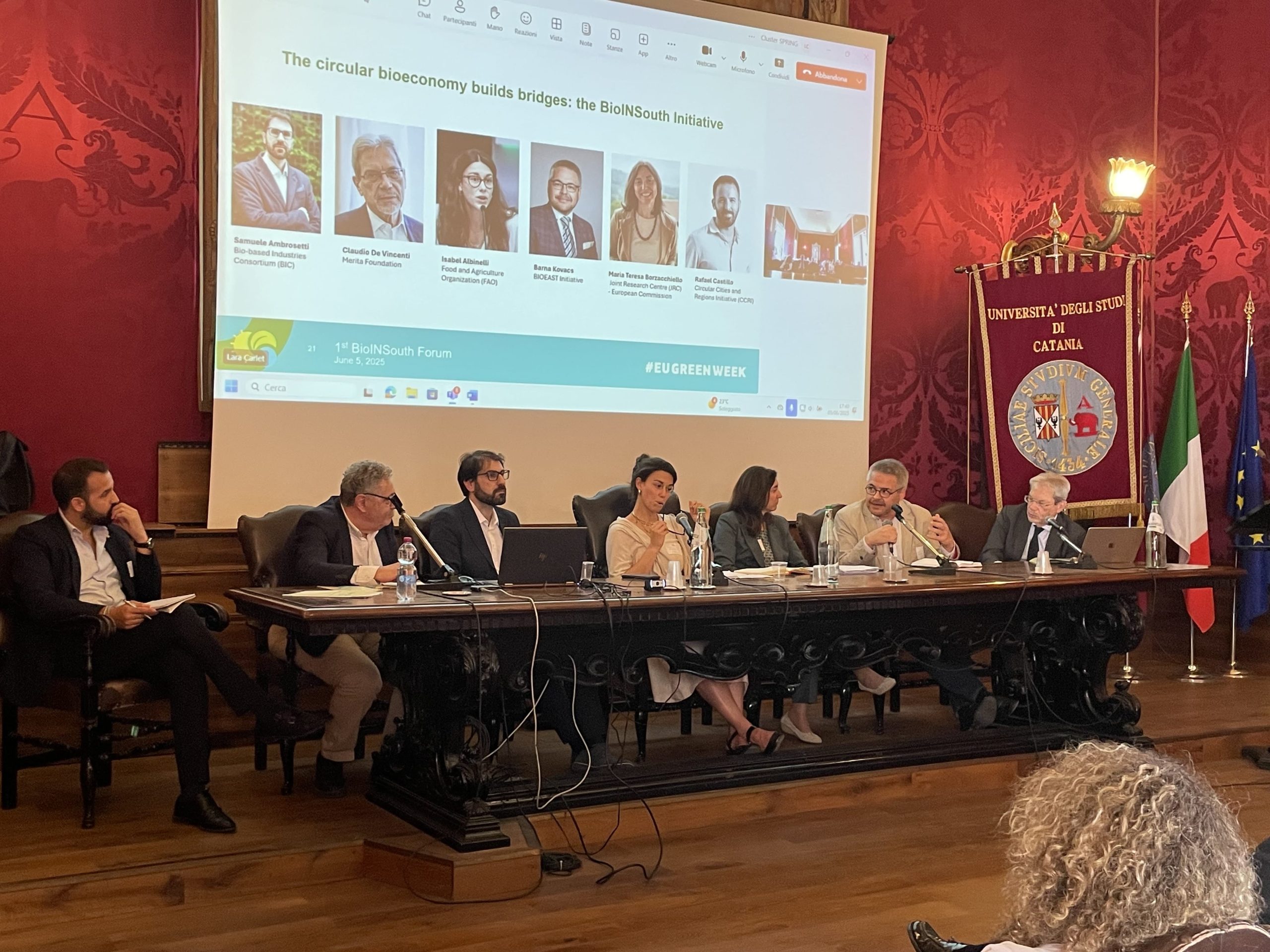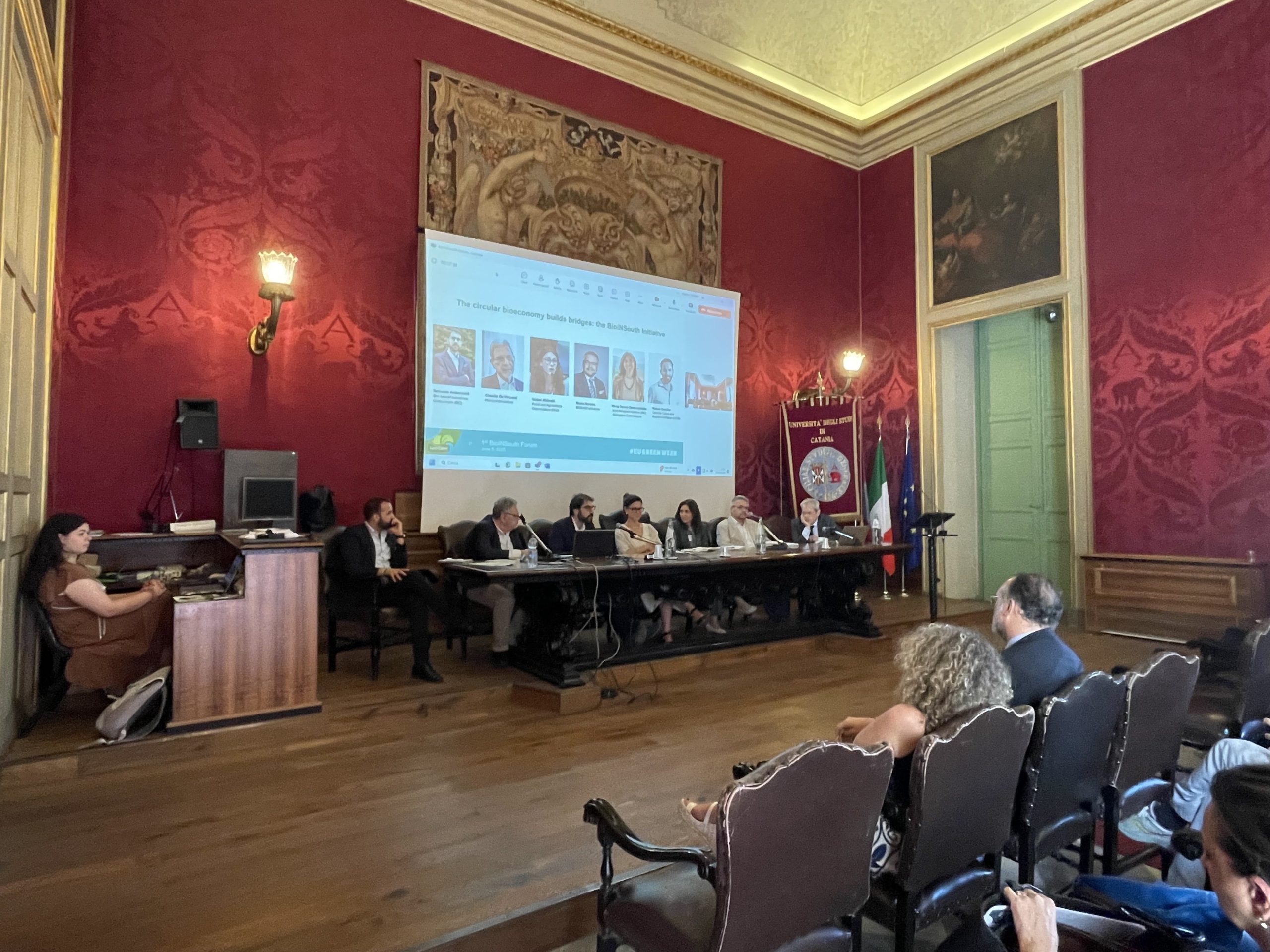Catania, 5–6 June 2025 – The BIOSouth CBE-JU project convened the first BIOSouth Forum in Catania, bringing together regional, national, and European stakeholders committed to advancing the bioeconomy in Southern Europe. The event offered a strategic platform for dialogue, knowledge exchange, and macro-regional cooperation—particularly among widening regions aiming to build capacity and unlock the potential of bio-based innovation.
A central feature of the Forum was the high-level panel discussion titled “The Circular Bioeconomy Builds Bridges: The BioSouth Initiative”, moderated by George Sakellaris (BIOEAST HUB CR). The panel brought together key voices in the bioeconomy landscape, including Isabel Baldinelli (FAO), Maria Teresa Borzacchiello (Joint Research Centre), Samuelle Ambroseti (Bio-based Industries Consortium), Claudio de Vincenti (Merita Foundation), Barna Kovács (Secretary General, BIOEAST Initiative), and Rafael Castillo (Circular Cities and Regions Initiative).
The discussion underscored the central role of cities and regions in the bioeconomy transformation. A shared understanding emerged around the necessity of empowering local actors through targeted training, demonstration infrastructure, and innovation ecosystems tailored to regional needs. Samuelle Ambroseti highlighted the critical need to build bridges through public-private partnerships that foster the emergence of new value chains in which cities and regions play pivotal roles. Rafael Castillo called for expanded capacity-building programmes to strengthen regional engagement. Isabel Baldinelli defined the bioeconomy as a strategic tool capable of connecting sectors, stakeholders, and sustainability objectives—functioning as a “bridge” toward a greener economy. Barna Kovács emphasized the strategic importance of aligning local biomass production with sustainable utilization models, enhancing research and innovation, and supporting regions in transitioning from conventional sectors to emerging bioeconomy business models. He noted that the presence of regional biorefineries and pilot sites is essential to catalyze structural change and foster economic resilience.
The BIOSouth Forum also served as the formal launchpad for the BIOSouth Initiative. Inspired by the success of the BIOEAST Initiative, originally established by the Visegrád Group (V4) and now extended to 13 Central and Eastern European countries, BIOSouth Iniative seeks to establish a comparable macro-regional framework in Southern Europe. Its mission is to unify widening countries under a shared vision of sustainable and inclusive bioeconomy development.
Looking ahead, Barna Kovács remarked: “The European Commission is currently shaping the next framework programme. This presents a unique opportunity for BIOEAST and BIOSouth to coordinate efforts and articulate common priorities, ensuring that widening countries have a voice in shaping Europe’s bioeconomy future.”



